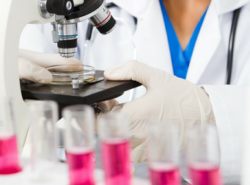
BREAST CANCER AND ABORIGINAL AND TORRES STRAIT ISLANDER PEOPLES
Acknowledgement Of Country
The National Breast Cancer Foundation would like to acknowledge Aboriginal and Torres Strait Islander peoples as the First Australians and their continuing connection to the land, sea and community. We pay our respects to their cultures and their Elders, past, present and emerging. We will respectfully use the terms, First Nations and First Peoples, interchangeably to refer to the Aboriginal and Torres Strait Islander peoples.
Aboriginal and Torres Strait Islander peoples and breast cancer
First Nations Australians tend to experience poorer health outcomes in breast cancer. Breast cancer is the most commonly diagnosed cancer for First Nations women, similar to their counterparts in the wider Australian population. Although First Nations women are 0.9 times as likely to be diagnosed, they are also 1.2 times more likely to die from breast cancer. The 5-year relative survival rate for First Nations population is also lower (81%) compared to the general population (92%).
Notably, participation rates in breast cancer screening programs are lower for First Peoples compared to non-Indigenous Australians (participation rate of 37.3% vs 53.2%), which may contribute to the lower rate of diagnosis. However, Aboriginal and Torres Strait Islander women were also more likely to be younger at diagnosis (20.6% aged under 50 years vs 11.7% aged under 50 years for non-Indigenous women). They are also more likely to be diagnosed with more advanced breast cancer or have larger tumours, compared with non-Indigenous women.
Being diagnosed with more advanced breast cancer or having larger tumours may contribute to the higher proportion of mastectomies rather than breast conserving surgery for First Nations women. Lower screening participation may also explain the increased likelihood of First Nations women being diagnosed with more advanced or larger breast cancers that may be more difficult to treat. Overall, being diagnosed with more advanced cancers, lower screening participation and other factors (such as the presence of additional diseases, geographical isolation, and cultural, lifestyle and socioeconomic factors), may contribute to the differences in survival between First Nations and non-Indigenous women.
Further health information about Aboriginal and Torres Strait Islander peoples
For further information about Aboriginal and Torres Strait Islander populations and health outcomes, the Australian Institute of Health and Welfare has additional information, including information on breast and other cancers.
Support services
If you are an Aboriginal or Torres Strait Islander affected by breast cancer, further information and support services are available:
- Cancer Council NSW and Cancer Council Victoria have support services and dedicate web resources for Aboriginal and Torres Strait Islander peoples. The Cancer Council also have a series of publications and shared stories of Aboriginal cancer journeys.
- Cancer Australia also has cancer information dedicated to Aboriginal and Torres Strait Islander peoples, including information on Looking after Your Breasts.
- Breast Cancer Network Australia (BCNA) has a private online network for Aboriginal and Torres Strait Islander peoples.
The National Breast Cancer Foundation is committed to supporting research to help understand and improve breast cancer outcomes for all Australians, including Aboriginal and Torres Strait Islander peoples.
Related Research
